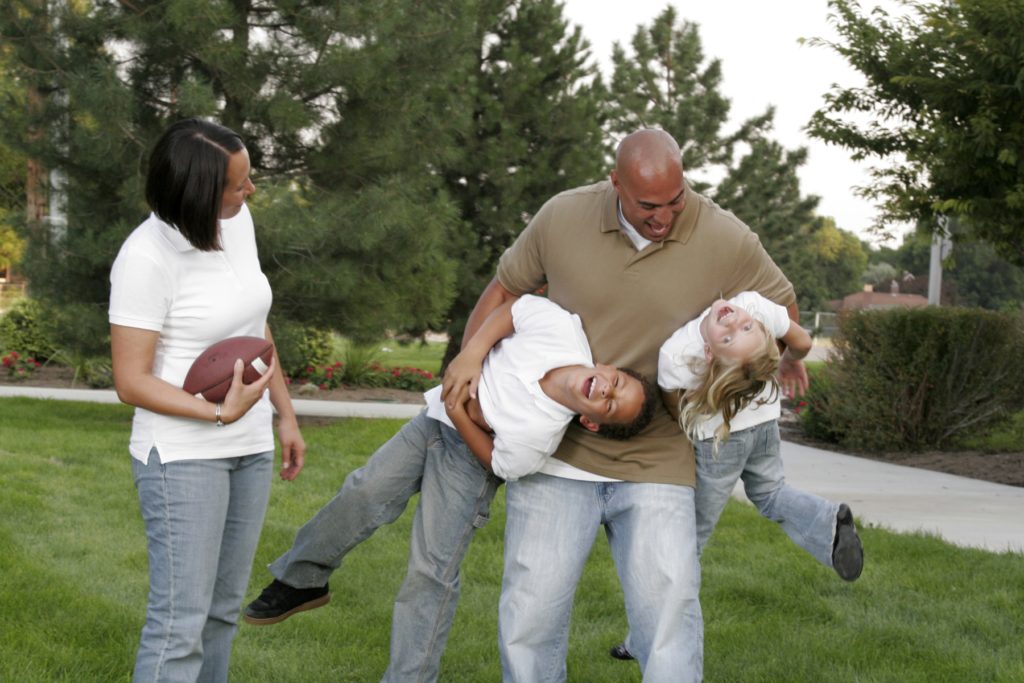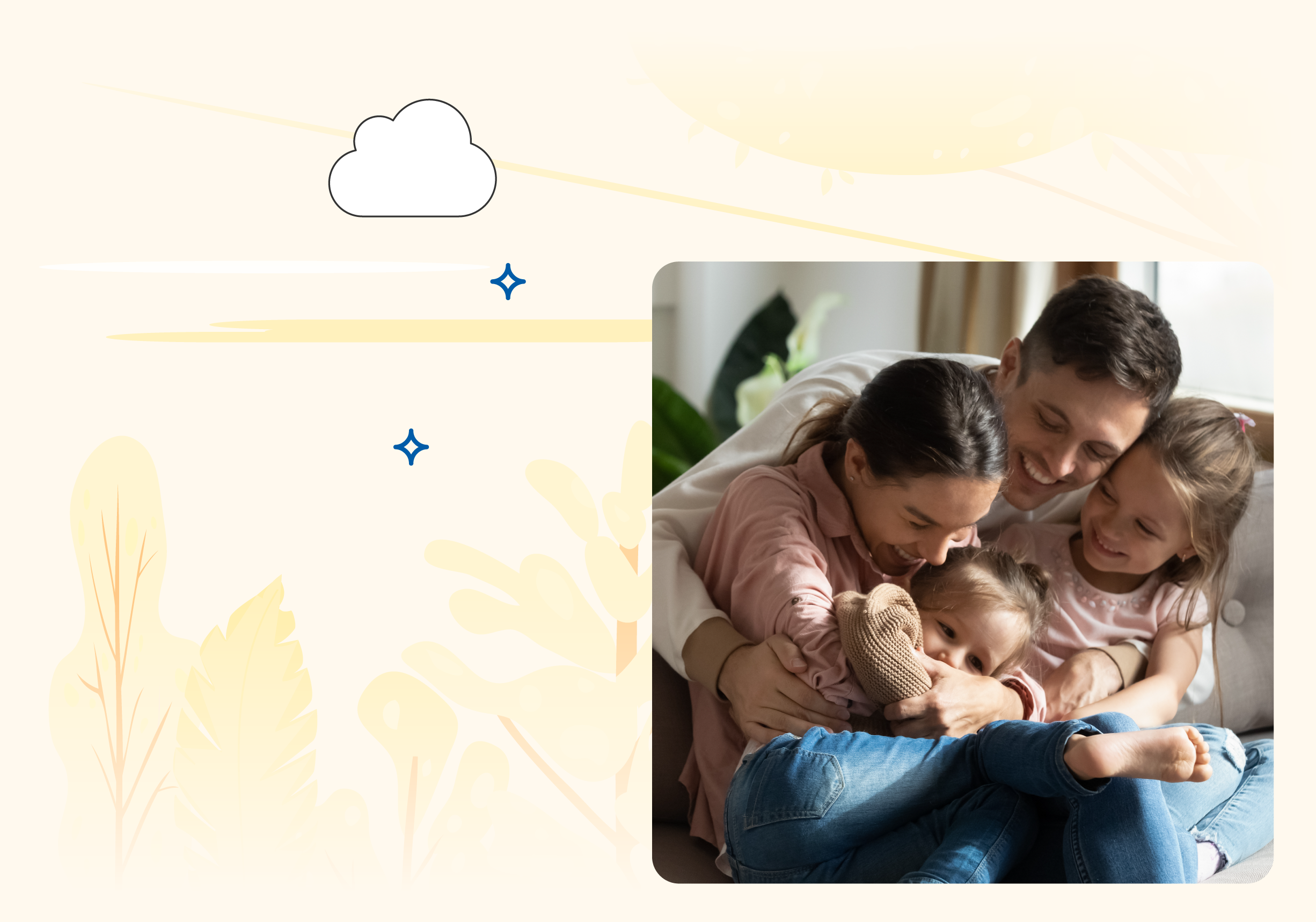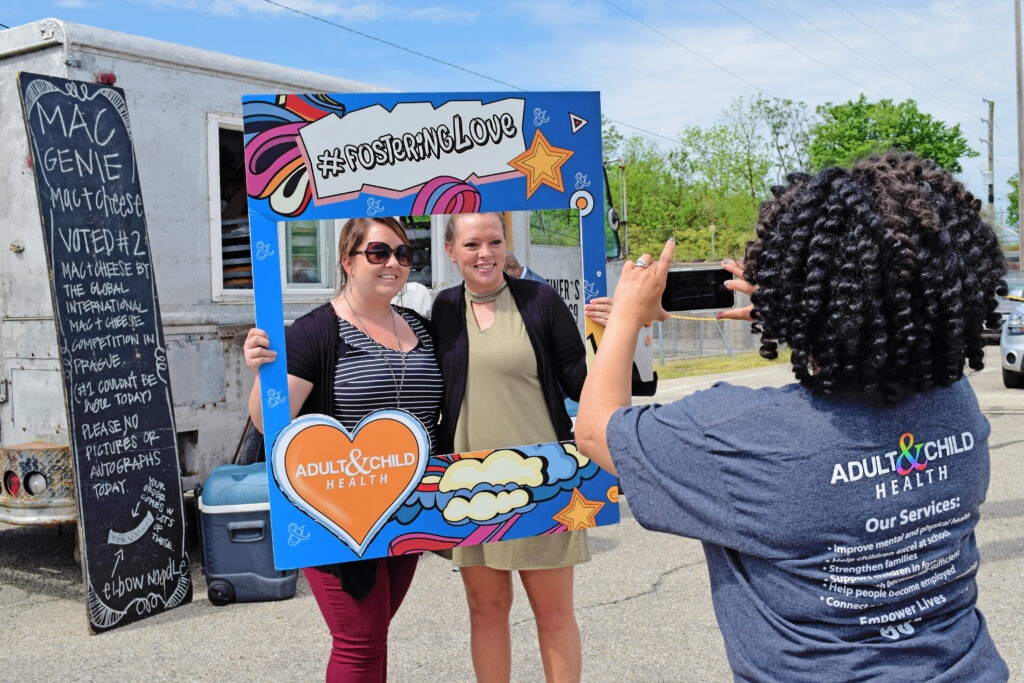Thank You for Your Interest in Fostering Through Adult and Child Health!
You have taken the first step toward helping local youth in need. Our foster families provide loving, supportive homes to children who have been removed from their homes of origin.
The children we serve need people like you to care for them and give them a place to heal while their caregivers take the steps they need to work toward reunification.
We are looking forward to meeting with you and guiding you through the licensing process to become a foster parent.

Frequently Asked Questions
Many of the most commonly asked questions are answered here. We know that you will have many questions about becoming a foster parent, beyond what we can share in this space. We will address many of your questions during pre-service training. If you would like to talk with us about fostering, please call us at 317-946-9466.
There are many reasons more families are needed. It is common for our current families to reach the state’s allowable “maximum” capacity, and not be able to take additional children. In addition, the more families available, the greater the likelihood we can place siblings together. And, the more diverse our foster family base is, the better we can match a child’s needs to a family. The more families we have dispersed throughout our services areas, the more likely we can place children in or near their own communities and avoid disrupting positive familiar connections for the child, like schools, peers, and positive role models.
Therapeutic Foster Care, also known as “Treatment” foster care, is a level of
foster care that provides care, nurturing, and services to children believed to have significant emotional and behavioral needs. Caregivers who foster through a Therapeutic Foster Care program receive a wide range of supports.
There are minimum standards that a home must meet in order to become a licensed therapeutic foster home with Adult & Child. Foster parents must be at least 25 years of age and must be able to financially support themselves without public assistance. All residents of the household, age 18 and older, must pass local, state, and national criminal background checks. In addition, all household members must have clear Child Protective Services checks. Foster parents must have reliable and insured transportation, as well as a valid driver’s license. The foster home must have sufficient bedroom space.
We license a wide variety of foster parents because we believe this diversity will provide the best placements for kids. We encourage and support foster parents regardless of race, religion, socioeconomic status, marital status, sexual orientation, or gender.
Foster parents provide a safe, nurturing, and usually temporary home for children who have been removed from their home due to abuse or neglect. Foster parents care for children, with a goal to help them safely reunify with their families.
Adult and Child Health covers the majority of the costs associated with licensing, such as many of the costs associated with training, background checks, the home study, and other investments for a typical two-parent family. Potential foster parents are responsible for the cost of the health screening for all household members. There may also be a minimal charge for local background checks.
The licensing process typically take 2-3 months. It is driven by the emerging foster parent’s engagement in the process.
Our goal is to match your home to the child whose needs and profile are the best fit. We use a specialized matching process when placing foster children. Recognizing that every child is unique, and has unique needs, we work to match the child with staff and families who are best prepared to meet those needs.
Children in foster care are as diverse and unique as the children living in your community. They are individuals of varying likes, dislikes, ethnic backgrounds, talents, interests, intellect, and needs. The common thread that links children in foster care is their exposure to trauma which usually leads to psychological, emotional, and/or behavioral challenges. Their response to abuse and/or neglect is a shift in their brain’s perception to survive in a hazardous world. Children who have shifted into this “survival” mode will take a great deal of effort and nurturing to help them feel safe and secure.
Children are impacted in very different ways, depending on the age of your child, sensitivity to change, resilience, capacity to share, gender, and even their own special needs. Some children are very receptive to new children coming into your home and others may need time to adjust to the impact that adding another child creates. This sometimes disrupts the birth-order (age sequence or rank) of your own children, when a foster child enters the family. Children who are excited to be a foster family during the application process may not be fully prepared for the reality of sharing their space, belongings, and family (parents, siblings, and extended family). They may need time to adapt to their new foster sibling, just as an “only child” would need to learn their role as “the oldest” when a newborn sibling arrives. With time, they will develop bonded relationships that are similar to that of stepsiblings (including normal feelings of care, concern, jealousy, anger, joy, and sibling defense). It is imperative that your children have a voice in the decision to be a foster family. They should also be included in selecting the matching criteria of children you would like to provide care for (such as age range, gender, etc.).
Adult and Child Health provides both financial and sustaining supports. Foster families receive a competitive daily allowance, paid respite days, mileage reimbursement, 24/7 access to emergency behavioral health services, support to maintain their license, and more.
Take the first step in making a lasting impact in a child's life
By opening your heart and home, you can help shape the future for a child and be a part of their journey towards a brighter tomorrow. Don’t wait, take action now and start the journey to become a foster parent.

Foster Training
Adult and Child Health is Actively Licensing New Foster Parents
We provide training for new foster parents at no cost. This training prepares you to care for foster children, while meeting the state’s requirements.
Adult and Child staff provides all the training you need to become licensed, including: Resource and Adoptive Parent Training, Therapeutic Orientation, CPR and First Aid.

&
Training Schedule
We offer in-person and virtual training options to suit your needs. Follow the steps here to begin your foster journey.
This is where you learn more about what it means to be an A&C therapeutic foster parent. To set up a date and time that works for you, or to request more information, contact Amanda Orr at
317-946-9466 or email aorr@adultandchild.org.
If you decide to move forward after your information session, you will be paired with a licensing specialist to walk you through all of your pre-service training. The licensing process typically takes 2-3 months, but it is driven by your engagement in the process. Our staff are here to meet your family’s individual needs and make the trainings as accessible as possible, based on your schedule.
Our staff will help you maintain your licensure by offering opportunities for additional trainings each year.
Have any questions? Reach out to us!
Becoming a foster parent is a rewarding and fulfilling journey, and we are here to support you every step of the way. Contact us today for more information and take the first step towards changing a child’s future for the better. Our normal office hours are 9am – 5pm, Monday-Friday.



